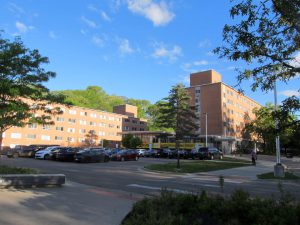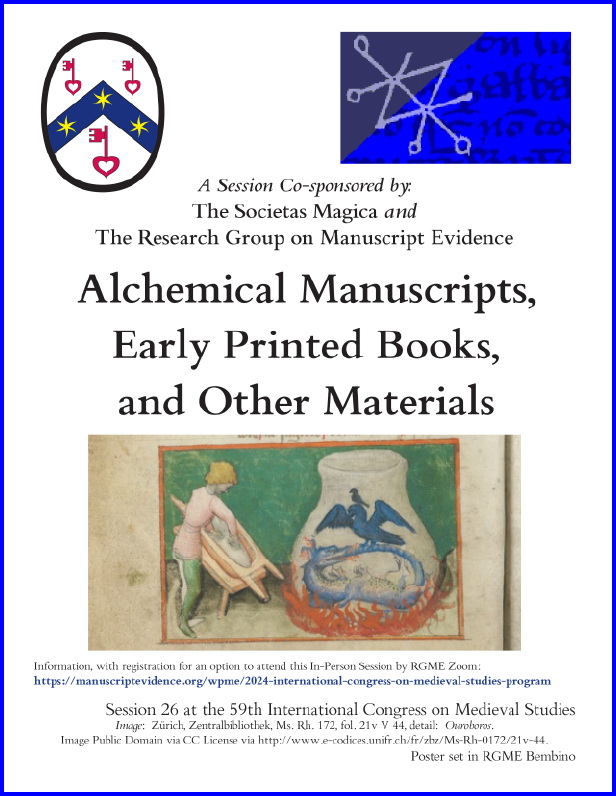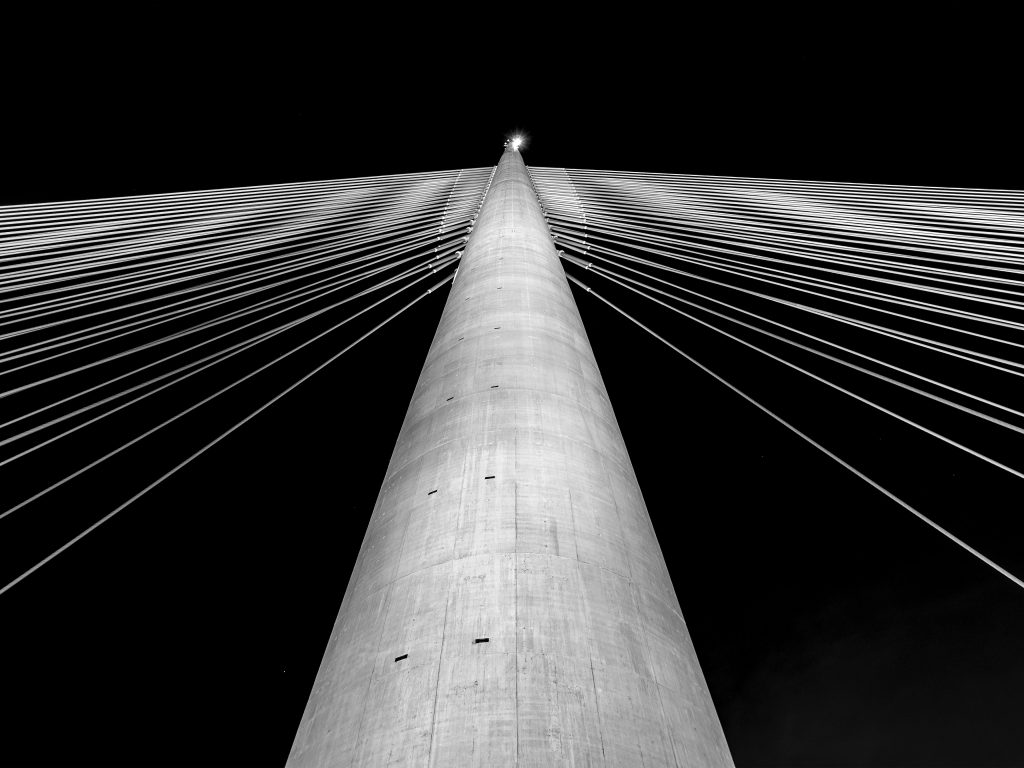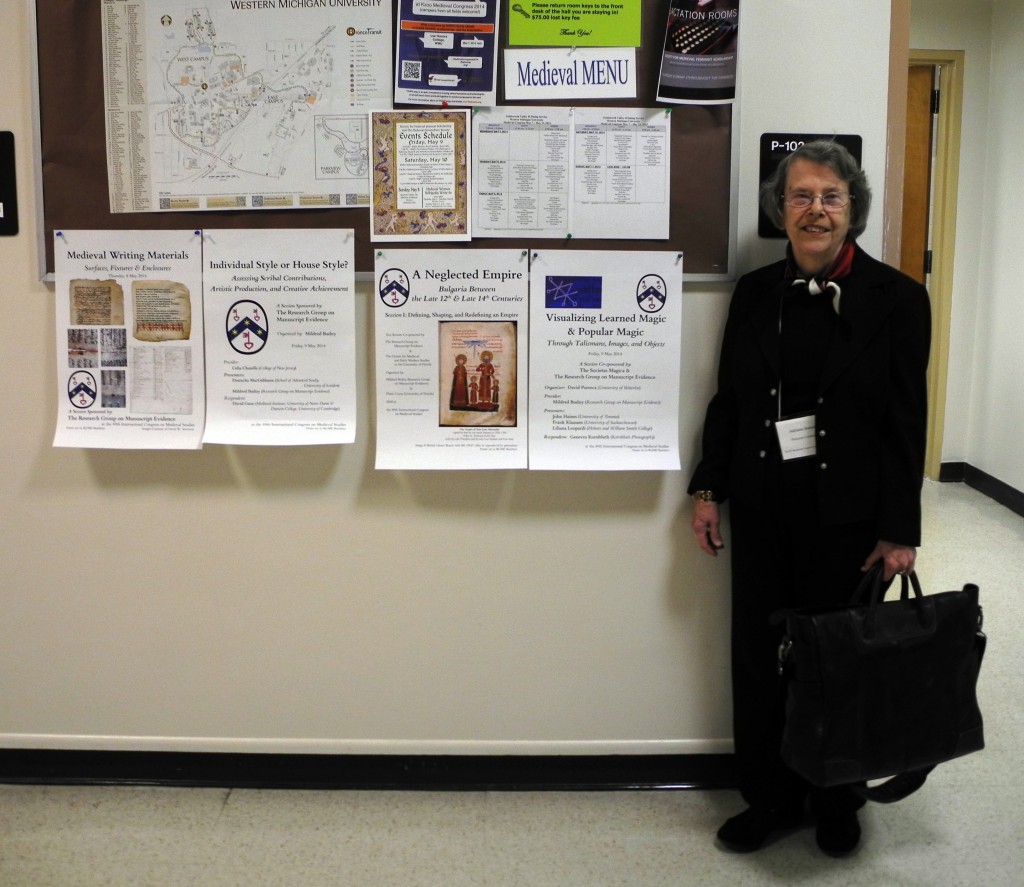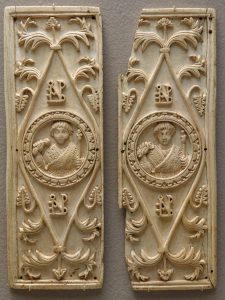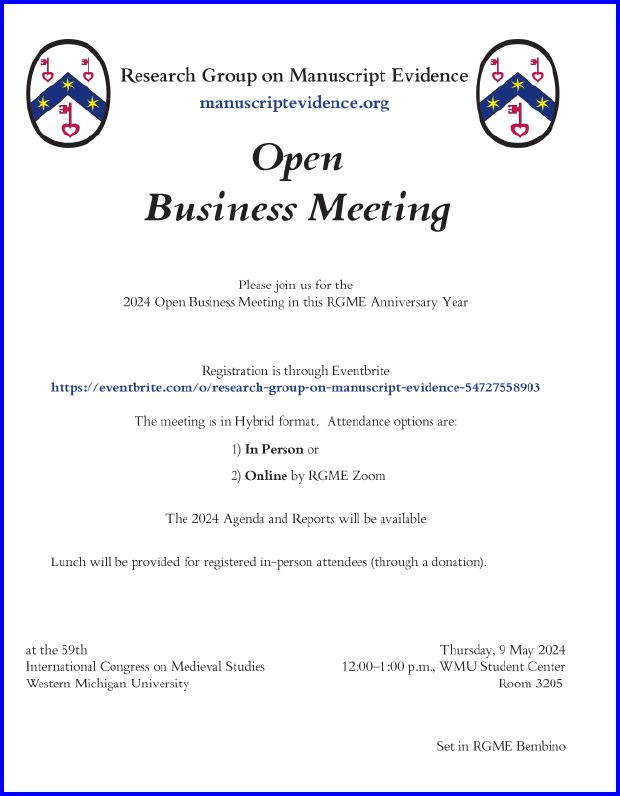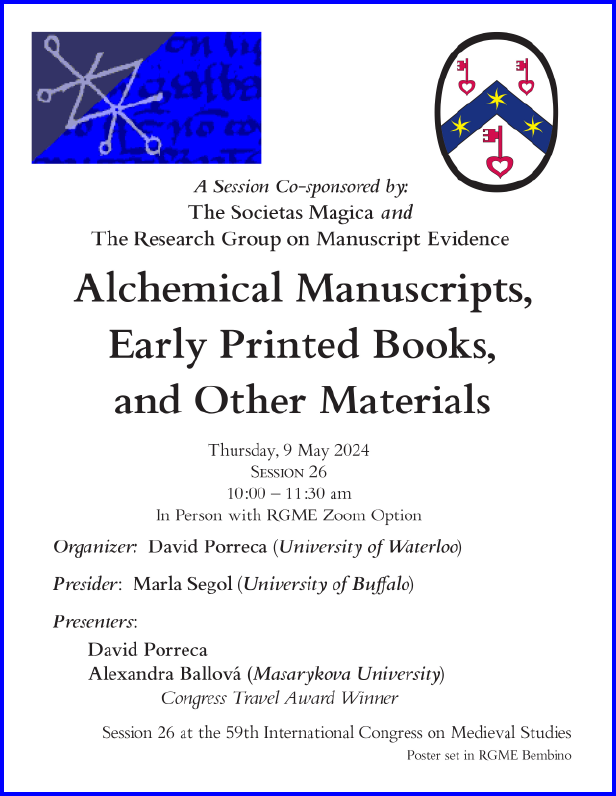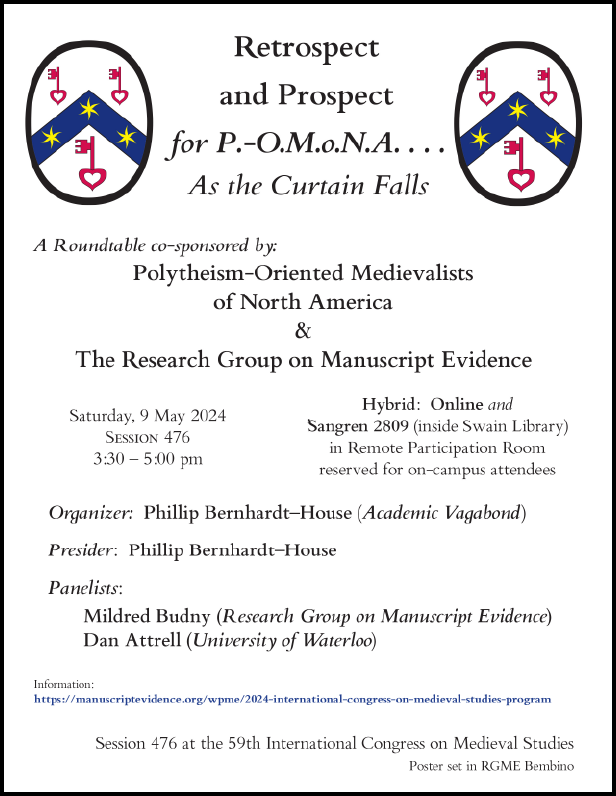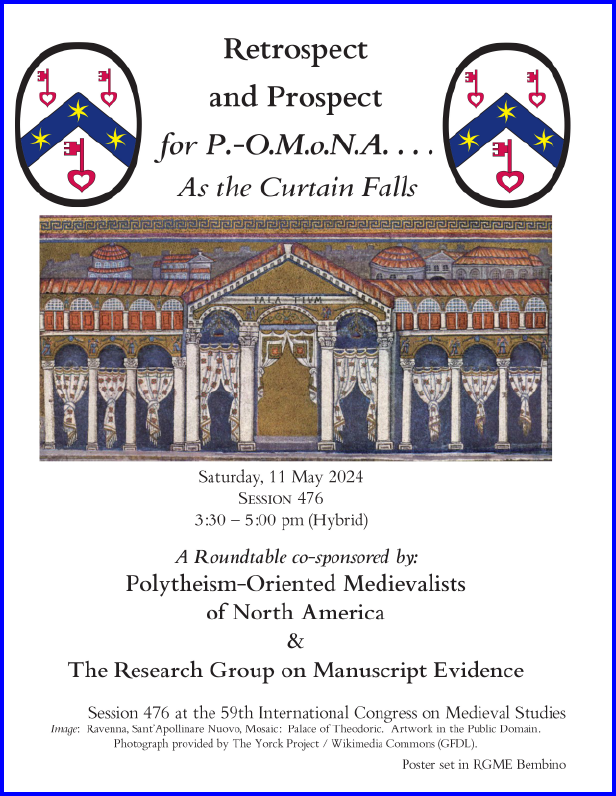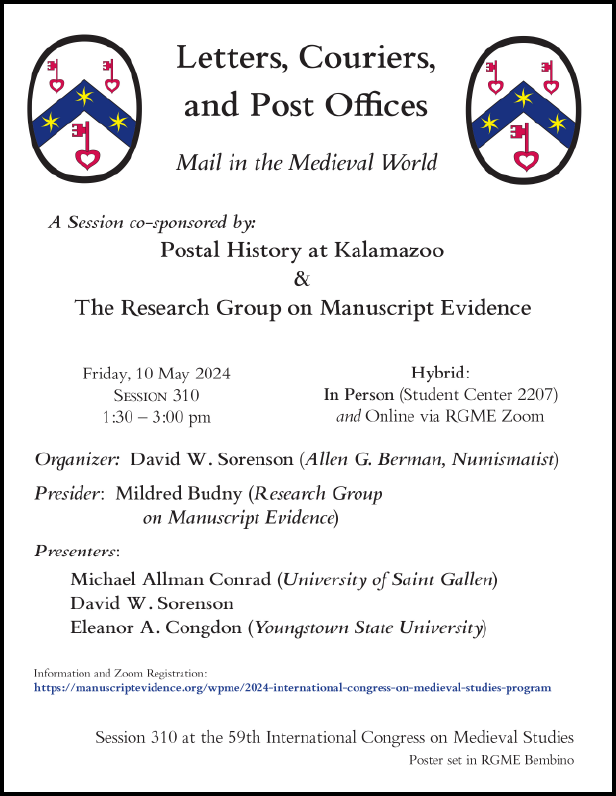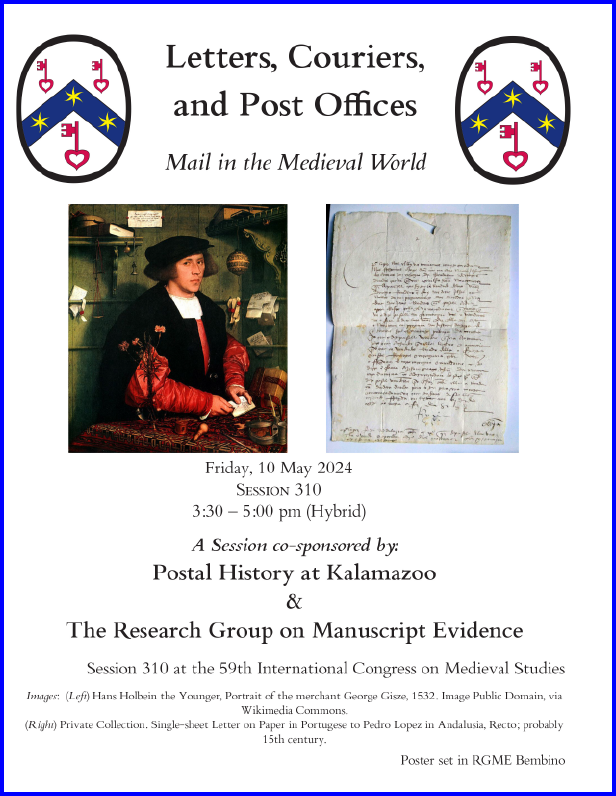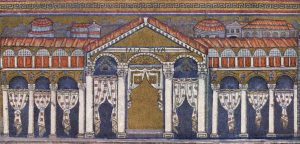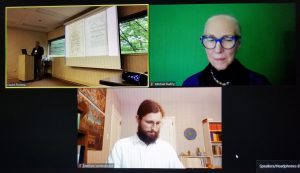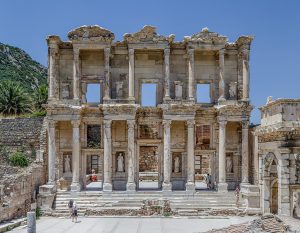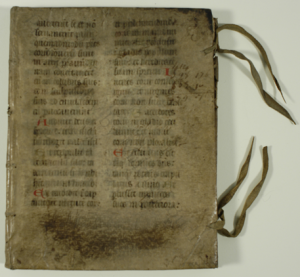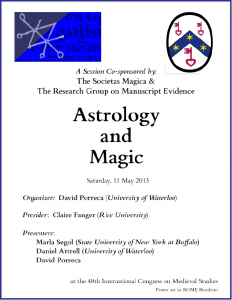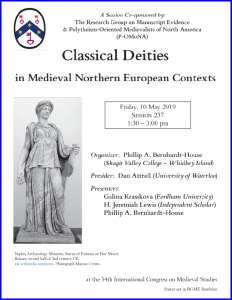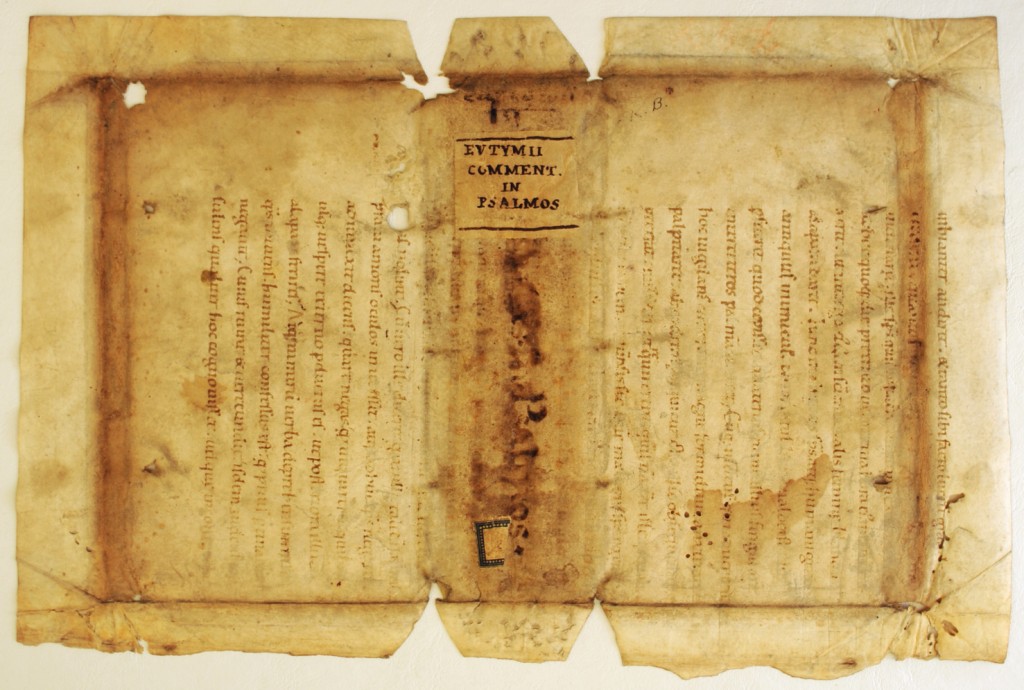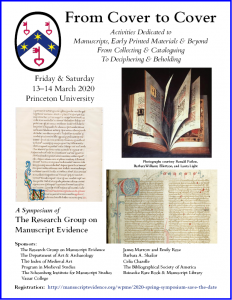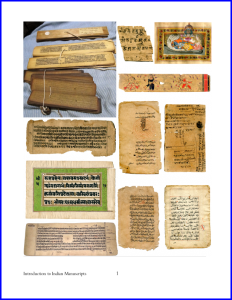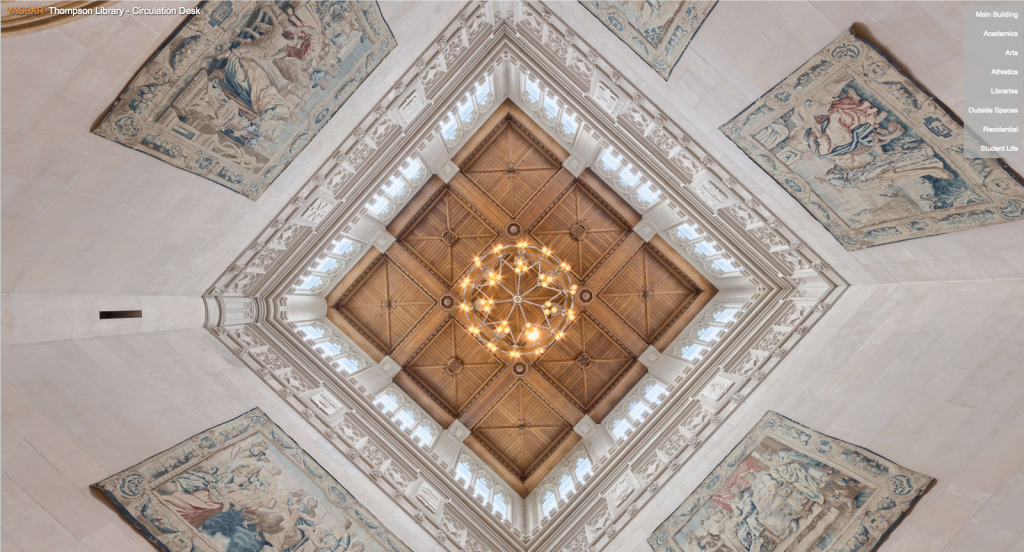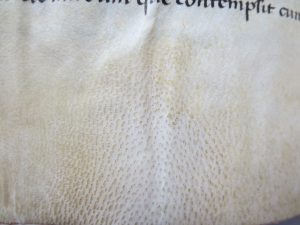2025 International Congress on Medieval Studies: Call for Papers
July 14, 2024 in International Congress on Medieval Studies, Kalamazoo, POMONA, Societas Magica
2025 International Congress
on Medieval Studies:
Call for Papers
60th ICMS
Thursday through Saturday, 8–10 May 2025
(with Sessions variously
in Person, Online, or Hybrid)
[Posted on 14 July 2024]
Building upon the successful completion of our activities at the 2024 ICMS (see our 2024 International Congress on Medieval Studies Report), we announce the Call for Papers (CFP) for next year’s Congress. For the CFP for all Sessions for the 2025 Congress, see its Confex Portal.
Here, first comes general information for your consideration, then we present our curated offerings of Sponsored and Co-Sponsored Sessions for your choice of proposals. Links for each Session show the direct lines to the Congress’s Confex System for your proposals for specific Sessions.
Process and Timetable for Proposals
For information about the Congress, see its official website. There you can also find information and instructions about submitting your proposals. See especially Submissions. Your proposals for papers are due by 15 September 2024.
After the close of the Call For Papers, we will select the accepted papers and design the Programs for the Sessions, with the Papers placed in order and Presiders assigned. Some Sessions may also have Respondents. Notifying you of the decisions about your proposals will come before the deadline for us to submit the Programs for our Sessions to the Congress Committee is 15 October 2024.
Then What?
Next, normally by the turn of the year toward the year of the Congress, on our website we publish the selected Programs for our Sessions and announce our other Activities, while we await the promulgation of the official Schedule for the 2025 Congress. The Abstracts for the Papers accompany our announced Programs. Then, with the publication of the Congress Program (or its traditional preliminary ‘Sneak Peek’), we can add the times and venues for our Sessions. As the 2025 Congress approaches, new, unfolding, and revised information will guide announcements and updates on our website and social media.
RGME @ 2025 ICMS
For 2025, we prepare:
- four Sessions, sponsored and co-sponsored
- a customary Open Business Meeting at the Congress
- and perhaps a Reception.
Four Sessions are our own (Item I). Our co-sponsors for ICMS Sessions in 2025 are:
- Societas Magica (with two co-sponsored Sessions)
- Polytheism-Oriented Medievalists of North America (P.-O.M.o.N.A.)
- Postal History at Kalamazoo
Among our co-sponsorships for the Congress over the years, 2025 marks Year 21 of our co-sponsorship with the Societas Magica, Year 4 with P.O.M.o.N.A., and Year 2 with Postal History at Kalamazoo.
The Session co-sponsored with Postal History at Kalamazoo continues the tradition of our long-term series of RGME Sessions at the ICMS on “Medieval Writing Materials”, which began in 2014. (See, for example, our Congress Activities and 2022 International Congress on Medieval Studies Program.)
Our 2025 Sessions
The RGME announces its proposed Sessions for the 2024 Congress and invites your proposals for papers.
Proposals should be made through the Congress’s Confex System. Here we provide session-specific links for each session. The deadline for your proposals is by 15 September 2024.
The Sessions are designed variously as in-person, online, and hybrid. In the case of an In-Person Session, Congress directions state that “only people who plan to attend the Congress in person next May should submit proposals to it. If there is sufficient interest in this topic to support a corresponding virtual session, please fill out the webform to request an additional session.”
The official call for papers will be posted on the Congress website in early July, with links to submit proposals through the Confex system.
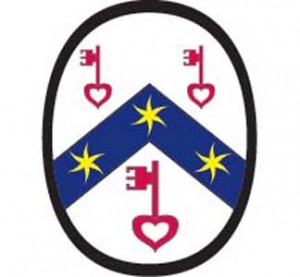
RGME Logo in Color.
I. Sessions Sponsored by the RGME
1. “Deviant Images: Text/Image Relationships in Medieval Manuscripts” (ID: 5977)
In-Person Session
Organizer: Cortney Anne Berg (CUNY Graduate Center)
Aim
This panel provides a space to examine the ways that images and texts work together (or against each other) in medieval manuscripts. Scholars who study manuscripts often treat the images and the texts as separate phenomena without considering how a medieval reader would have interacted with the holistic object. Many studies of manuscripts treat the images as mere illustrations of the text, and this panel invites all scholars of manuscripts to explore the ways in which images work or do not work with the accompanying text.
Very rarely do images and texts provide the same information, and very rarely are images just illustrations to the text they accompany. Therefore, how can contemporary viewers understand the relationship between medieval images and the texts they accompany?
This panel invites papers that explore medieval manuscripts and how their images deviate from or conform to the text. We encourage inquiries that describe the important intersections between text and image, and attempt to reconstruct the relationship between the two, particularly as these relationships may or may not map to lived conditions. We also encourage inquiries that reveal interesting information about manuscript culture writ large. Although this panel seeks papers that deal directly with images not just as aids to the text or reading, any methodological approach from literature, anthropology, history, religious studies, art history, or any other discipline that can make interesting connections between text and image would be a welcome addition to this panel.
Keywords: Manuscript studies, art history, literature, medieval manuscripts, medieval studies
Proposals
Link to submit your proposals directly to this session by 15 September 2024:
https://icms.confex.com/icms/
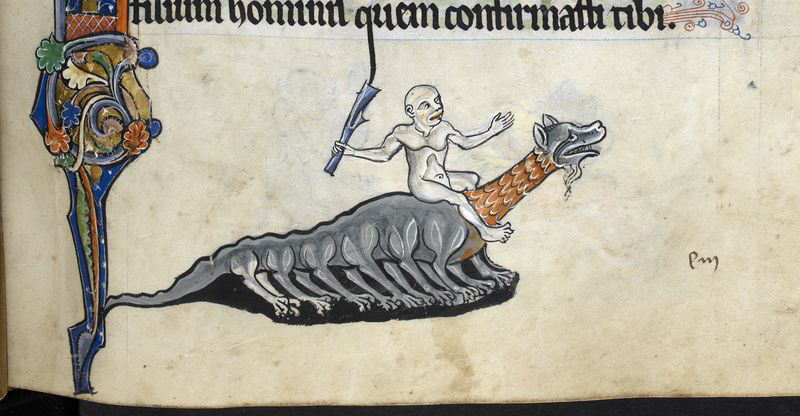
London, British Library, Add. MS 62925, fol. 83r detail. Rutland Psalter in Latin, circa 1260, England (London?). Image via https://blogs.bl.uk/digitisedmanuscripts/2013/05/marginali-yeah-the-fantastical-creatures-of-the-rutland-psalter.html
2. “Rending the Veil:
The Rupture of Image and Text
in Medieval Apocalypse Commentaries” (ID: 6459)
In-Person Session
Organizers:
Mildred Budny (RGME)
Zoey Kambour (CUNY Graduate Center and RGME Intern Executive Assistant)
Vajra Regan (Centre for Mediaeval Studies, University of Toronto)
Aim
This session explores the various discontinuities between images and texts in illustrated Apocalypse commentaries from the Middle Ages. These differences can manifest in several ways. For instance, an illustration might align more closely with the commentary rather than the biblical text. Additionally, variations can arise from established, highly localized traditions or contemporary innovations. Investigating these differences, whether within a single manuscript or across a complete cycle of illustrations, provides valuable insights into the institutional, political, and intellectual contexts of the manuscript’s production.
Methodologies
This session seeks to explore illustrated Apocalypse commentaries from the Middle Ages through an interdisciplinary lens; therefore, we are open to the methodologies of diverse disciplines including, but not limited to, art history/iconography, manuscript studies, religious studies, and digital humanities. By embracing a wide array of perspectives and analytical frameworks, we hope to foster a holistic understanding of medieval apocalyptic imagery and its multifaceted interpretations.
Keywords: Apocalypse, Beatus, Material Culture, Art History, Literature, Medieval, Manuscript Studies, Religious Studies, Digital Humanities, Manuscript Production
Proposals
Link to submit your proposals directly to this session by 15 September 2024:
https://icms.confex.com/icms/
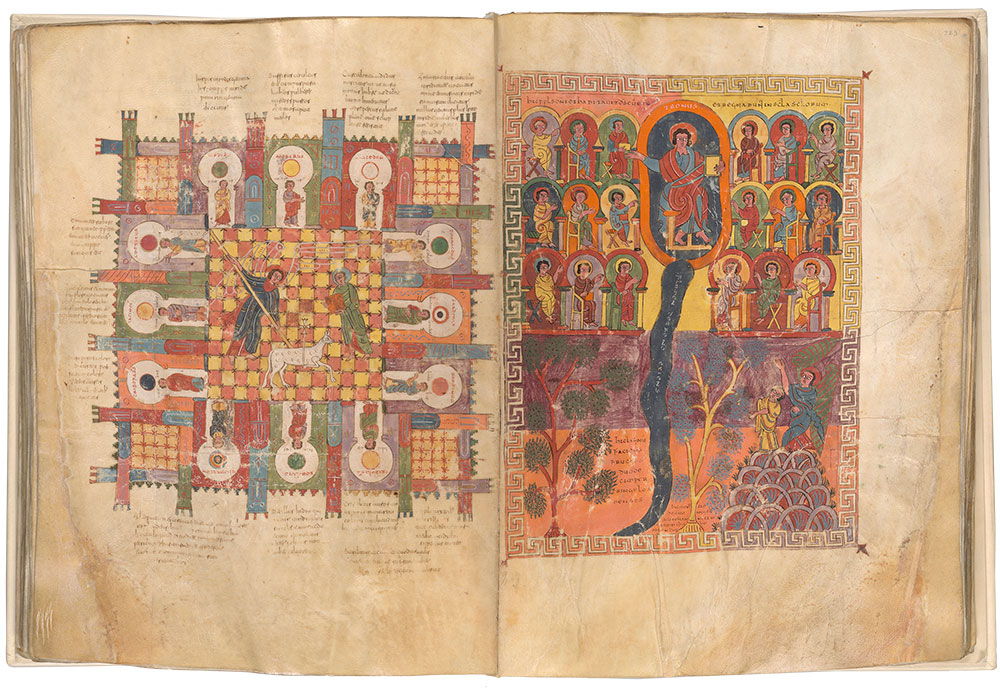
New York, Morgan Library and Museum, MS M.644, fol. 222v-223r. Beatus, Saint, Presbyter of Liebana, -798. Commentary on the Apocalypse (MS M.644). Spain, San Salvador de Tábara, ca. 945. Image via https://www.themorgan.org/manuscript/110807.
3. “Women and Manuscripts:
Questions of Authorship” (ID 6310)
Hybrid Session
Co-Organizers:
Jaclyn A. Reed (Research Group on Manuscript Evidence)
Mildred Budny (RGME)
Aim
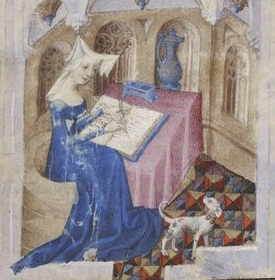
Paris, Bibliothèque nationale de France, Département des Manuscrits. Français 835, fol. 1r, detail. Frontispiece illustration of the scribal author for collection of texts by Christine de Pizan. Image via https://gallica.bnf.fr/ark:/12148/btv1b8449047c/f9.item.
Women as authors of manuscripts do not always receive adequate attention or study. This past year, the Research Group on Manuscript [and Other] Evidence held an informal, virtual discussion session as part of its “Research Group Speaks” series (Episode 15) focusing on research of manuscripts or texts authored by women and found that the reception and interest were very high both among those wanting to participate and those wanting to attend. Building upon this momentum, we propose further explorations in a panel for the 2025 Congress.
This session will examine women’s relationships with and representations in manuscripts and other evidence, especially those that they personally authored or created. Authorship has sometimes been limited in scope to literary or narrative texts, which can leave out the types of manuscripts that women were more likely to produce such as commonplace books or other collections of receipts, medical treatments, or a variety of other household notations. We welcome methodological approaches that consider manuscripts or other evidence authored by women including, but not limited to, philology, manuscript studies, material culture, and history of the book.
Keywords: History of the book, Manuscript Studies, Material Culture, Representations of Women, Women’s Authorship, Women’s Literature
Proposals
For this Hybrid Session, we solicit participants who plan to attend the Congress in person, as well as participants who plan to attend virtually.
Link to submit your proposals directly to this session by 15 September 2024:
https://icms.confex.com/icms/2025/paper/papers/index.cgi?sessionid=6310
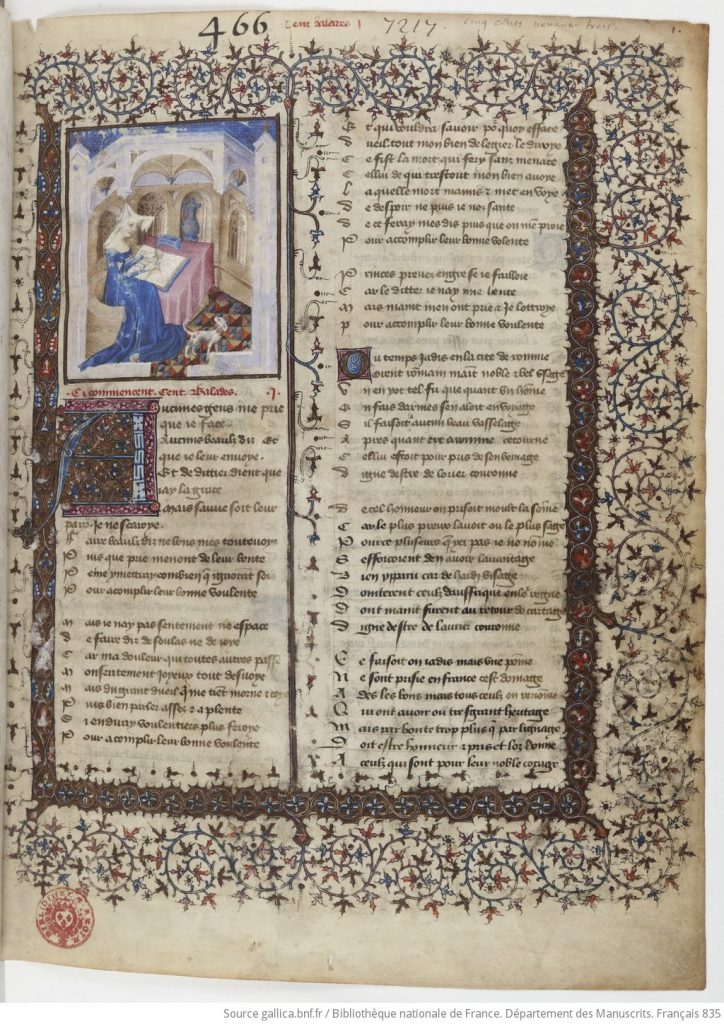
Paris, Bibliothèque nationale de France, Département des Manuscrits. Français 835, fol. 1r. Opening of collection of texts by Christine de Pizan. Image via https://gallica.bnf.fr/ark:/12148/btv1b8449047c/f9.item.
II. Sessions Co-Sponsored by the RGME
4. Moving the Mail: Letters, Couriers, and Post Offices in the Medieval World (ID: 6312)
In-person Session
Co-sponsored with Postal History at Kalamazoo
Organizer: David W. Sorenson (Allan Berman, Numismatist)
Aim
In a world in which communication was necessarily through the written word, getting it from sender to recipient could be a complicated process. While important correspondence could be sent quickly, ordinary letters might be less speedy, and while royal letters might be sent by an efficient official system, ordinary letters between, say, merchants or clergy, might be much less so. This session is intended as a means of examining the ways in which mail moved, whether in Europe or elsewhere.
Proposals
Link to submit proposals directly to this session by 15 September 2024:
https://icms.confex.com/icms/
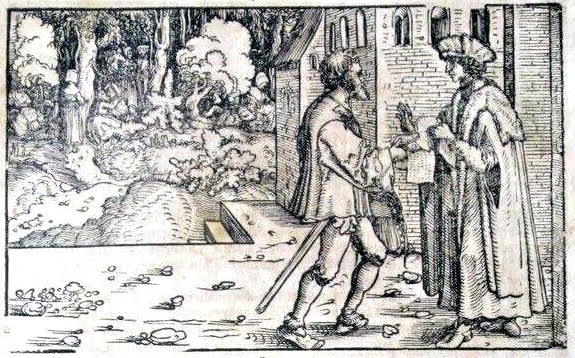
Private Collection, Courier delivering letter. German translation of Petrarch (1559).
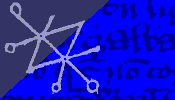
Societas Magica logo
5. “Grimoires of the Greater West (2): Multicultural Solomonic Magic:
The Case of the Almandal” (ID 6392)
In-person Session
Co-sponsored with the Societas Magica
Organizers:
Vajra Regan (Centre for Medieval Studies, University of Toronto)
>vajra.regan@mail.utoronto.ca
Gal Sofer (Ben-Gurion University of the Negev)
Matthew Melvin-Koushki (University of South Carolina)
Aim
The Almandal and Almadel of Solomon were among the most influential books of ritual magic in the late Middle Ages. These texts survive in multiple versions that intersect with different cultures and knowledge disciplines. The Almandal was adapted into Latin, most likely in the twelfth century, from one or more lost Arabic exemplars. The fragmentary state of the oldest extant version raises several questions. The text seems to present a work of ritual magic, but certain elements point to an astral magic component. The composite nature of the text has prompted researchers to inquire about the form of the archetype, the role of the Christian translator/editor, and whether the “Almandal” as we know it ever existed in Arabic.
The Almadel first emerged in the fifteenth century and represents a significant Christian revision of the earlier Almandal. Scholars have shown considerable interest in the Almadel for at least two reasons: first, it accrued a complex angelic cosmology that appears to have its origins in the Jewish tradition of the Liber Razielis (The Book of the Angel Raziel or The Book of the Mysteries); second, it exhibits a new, spiritual orientation, absent in the Almandal, thus providing a unique window into the early formation of what many now refer to as “Christian Theurgy.”
To date, scholarly attention has focused predominately on the Latin Almadel and its various vernacular translations (English, German, Italian). This imbalance may be attributed partly to gaps in the manuscript tradition that have isolated the Almandal and obscured its connection with the Almadel. However, over the last fifteen years, the discovery of several Latin and Hebrew manuscripts has helped to clarify the early tradition of the Almandal/Almadel while at the same time complicating previous assumptions about its origins.
This session seeks to reevaluate the history of the Almandal/Almadel in light of these and other discoveries. We invite papers on topics including, but not limited to:
- The history of the text
- Its Christian and Jewish reception
- Connections to traditions such as the Liber Razielis, the Ars notoria, and Berengar Ganell’s Summa sacre magice
- The role of these texts in the universities and their adoption and use by lay readers
We welcome papers that explore these themes and contribute to a deeper understanding of the Almandal and Almadel and their place in the history of ritual magic and religious practice.
Keywords: Manuscript Studies, Almandal, Magic, Societas Magica, History of the Book, Multicultural, Solomon, History of Magic
Proposals
Please send abstracts of no more than 300 words by 15 September 2024. All paper proposals must be submitted via the official Confex proposal portal.
Link: https://icms.confex.com/icms/2025/paper/papers/index.cgi?sessionid=6392
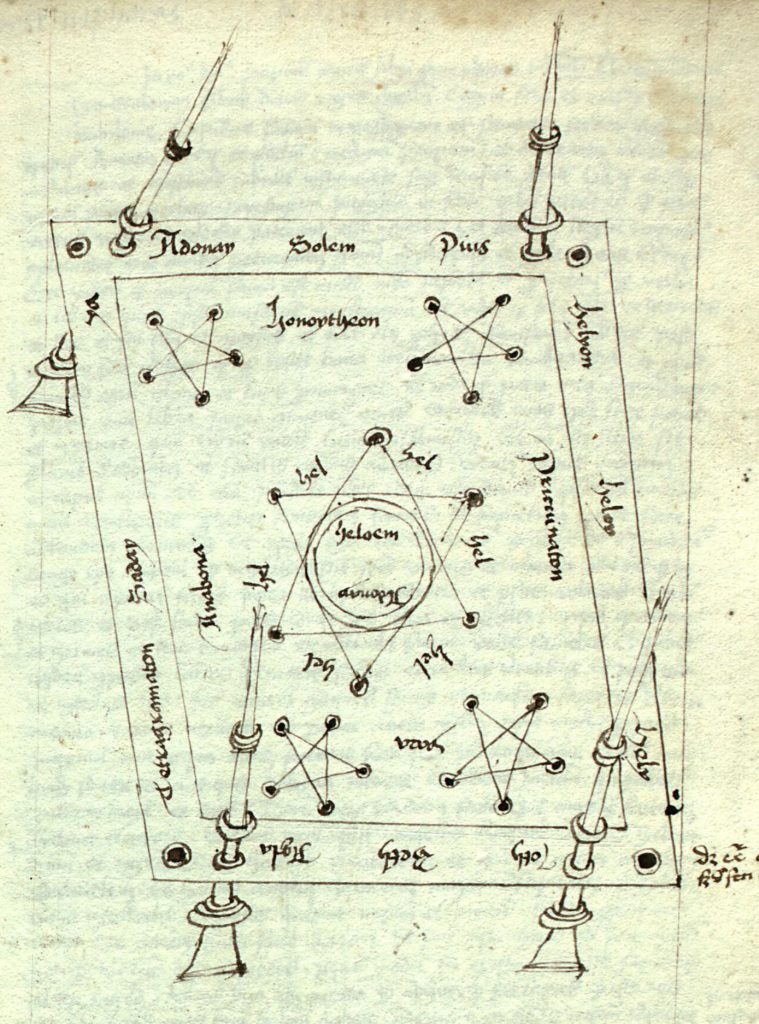
Halle (Saale), Universitäts- und Landesbibliothek Sachsen-Anhalt, 14 B 36, fol. 243r: Image image of the almadel or “table of spirits”. Astro-magical texts on paper, circa 1400. Image C.C. BY 4.0, via http://dx.doi.org/10.25673/33754.
6. “Sendalphon, Send Me a Dream:
Dream Books, Spells, Divination, Incubation, and Interpretation” (ID #6171)
Online Session
Co-sponsored with the Societas Magica
and
Polytheist-Oriented Medievalists of North America (P.-O.M.o.N.A.)
Organizers:
Phillip Bernhardt-House (Independent Scholar)
Claire Fanger (Department of Religion, Rice University)
Aim
From ancient Mesopotamian cultures, dreams are associated with divine encounters and intervention, particularly with foretelling future events directly or symbolically. Dream interpretation literature is rife with these understandings. Magical operations eliciting divinatory dreams are widely encountered. Particular sacred locations specializing in cultivating divinatory sleep for healing and other purposes, known as “dream incubation,” offered interpreters to assist those who sought such dreams. This session will explore many examples of dreams in/as divination, the outcome of spells, and through particular practices of incubation, as well as their interpretations and practices related to them in manuscript and other sources of various periods.
Keywords: Dreams, Dream Interpretation, Spells, Divination, Manuscript Studies, Magic, Societas Magica, Dream Incubation
Proposals
Please send abstracts of no more than 300 words by 15 September 2024. All paper proposals must be submitted via the official Confex proposal portal.
Link: https://icms.confex.com/icms/2025/paper/papers/index.cgi?sessionid=6171

Cambridge, Massachusetts, Harvard University, Houghton Library, MS Typ 7. Macrobius Ambrosius Theodosius, Commentum Macrobii Ambrosii in somnium Scipionis. Dated 1469 Feb. 7. Image Public Domain via https://houghtonlib.tumblr.com/post/146944005911/macrobius-ambrosius-aurelius-theodosius-comentum.
Note on the Image
Commentarii in Somnium Scipionis (Commentary on The Dream of Scipio), by Macrobius Ambrosius Theodosius (fl. c. AD 400) for a portion of De Re Republica by Marcus Tullius Cicero (106 BC – 43 BC).
Image Public Domain via https://houghtonlib.tumblr.com/post/146944005911/macrobius-ambrosius-aurelius-theodosius-comentum.

Los Angeles, Getty Center, Ms. Ludwig XV 7 (83.MR.177), fol. 1. Image Public domain, via Wikimedia Commons.
Note on the Image
Los Angeles, Getty Center, Ms. Ludwig XV 7 (83.MR.177), fol. 1.
Scipio and Guillaume de Lorris Lying in their Beds Dreaming
More information: SEE HERE.
*****
Questions? Suggestions?
- Leave your comments or questions below
- Contact Us
- Sign up for our Newsletter and information about our activities.
Send a note to director@manuscriptevidence.org or RGMEevents@gmail.com
Visit our Social Media:
- our FaceBook Page
- our Facebook Group
- our Twitter Feed (@rgme_mss)
- our Bluesky nest @rgmesocial.bluesky.social)
- our LinkedIn Group
Join the Friends of the RGME. Send your favorite recipe for Lemonade (and perhaps its Story) for our Competition.
Register for our Events by the RGME Eventbrite Collection.
Attend our next Events if your timetable allows. Our next Events:
- Episode 17. RGME Retrospect and Prospects (Saturday 21 September 2024 online)
- 2024 Autumn Symposium “At the Helm” (Friday–Saturday 25–26 October 2024 online)
- Episode 18. “Women as Makers of Books” (Saturday 14 December 2024 online)
Consider making a Donation in Funds or in Kind for our nonprofit educational corporation powered principally by volunteers. Your donations and contributions are welcome, and can go a long way. They may be tax-deductible to the fullest extent provided by the law.
Remember to send your Proposals for Papers for RGME Sessions at the 2025 ICMS by 15 September 2024. See the instructions above.
We look forward to hearing from you and welcoming you to our events.
*****

Los Angeles, Getty Center, Ms. Ludwig XV 7 (83.MR.177), fol. 1. Scipio and Guillaume de Loris Lying in Their Beds Dreaming. Image Public domain, via Wikimedia Commons.

